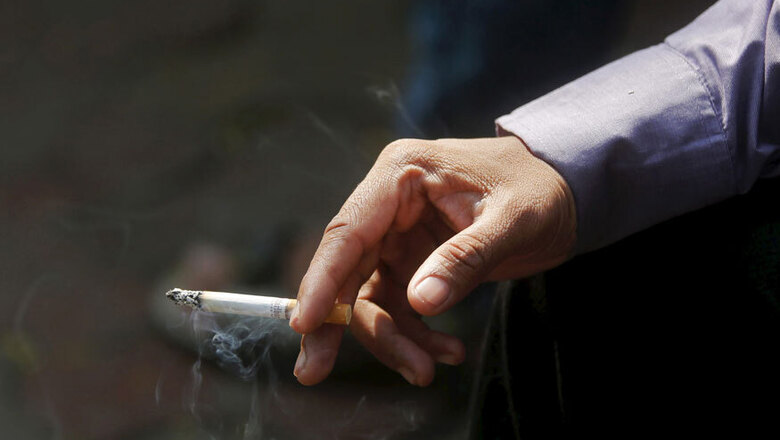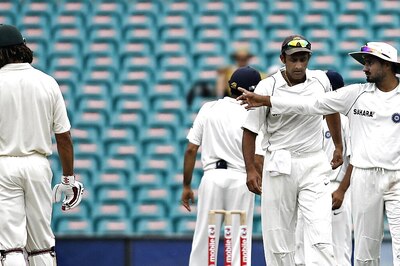
views
New Delhi: After the government prohibited electronic cigarettes citing health risks, two NGOs are planning to move the Supreme Court seeking a ban on conventional cigarettes, arguing they are more harmful, and other carcinogenic tobacco products.
Delhi-based NGO URJA (United Residents Joint Action) and Hyderabad-based group VchangeU are in the process of filing a writ and class suit in which they are also demanding compensation -- Rs 5 lakh for those suffering medical costs due to smoking-related ailments, and Rs 10 lakhs for those who lost an earning member of the family.
The government recently issued an ordinance making the production, import, export, transport, sale or advertisements of such "alternative" smoking devices a cognizable offence, and attracting a jail term and fine "in the interest of public health to protect the people from harm".
The Prohibition of Electronic Cigarettes (Production, Manufacture, Import, Export, Transport, Sale, Distribution, Storage and Advertisement) Bill, 2019, which seeks to replace the ordinance issued on September 18, was passed by Lok Sabha on Wednesday.
E-cigarettes promoting trade bodies, users and other stakeholders have been vehemently opposing the government's decision to ban e-cigarettes, claiming they were far less harmful than traditional cigarettes and the prohibition was brought to "protect" the conventional cigarette industry. The founder and President of VchangeU, Vijay Bhasker Yetapu, who is also one of the petitioners, said the government decision has opened up a favourable opportunity for activists and people suffering from tobacco addiction as a government "sensitive to the ills of nicotine addiction would not discriminate between different forms of the same."
"Thus, if e-cigarettes can be banned, so can traditional tobacco burning cigarettes and beedis - which are categorically agreed to cause cancer or such diseases that result on deaths. Health ministry figures say that 12 lakhs deaths are reported each year by tobacco smoking. No such figure or linkage is yet medically or scientifically established as regards to the use of e-cigarettes.
"Thus, it is imperative that this ban acts as a viable precedent to ban cigarettes as well, at the very least," Yetapu said. The NGOs said they have approached senior Supreme Court lawyer Prashant Bhushan and he has agreed to take up their case.
They said they are approaching the SC as a part of their campaign against "promotion and profiteering" by the government from cigarette manufacturing, sale and marketing and for seeking compensation for victims of smoking. Explaining the basis for the class-action suit, Atul Goyal, President of URJA alleged that the government through wholly owned entities is a participant in companies that produce, promote and sell cigarettes.
"A government that profits from the sale of cigarettes promotes addiction. Addiction causes fatalities to the tune of, by the governments own assessment, 12 Lakh deaths each year and in effect, it holds liability for these deaths. "Since the government has been earning dividends for such sale that has promoted and caused deaths, it has a macabre but social responsibility to offer compensation to those suffering or the families of the dead due to cancer or smoking related diseases," Goyal alleged.
People who are currently suffering from smoking addiction related diseases and undergoing treatment and families of those who have died due to smoking addiction related medical reasons will be asked to become co-petitioners and implead in the suit, he said.
"At the outset, the suit demands that the 60 lakh people who have died during the tenure of the current government over the last 5 years of its tenure should be compensated. "Thus the class action suit will demand Rs 3 lakh crores be kept aside as a pool for disbursement to those affected and those who implead in the suit," he said.
Their campaign is a result of the activism of Ashutosh Dikshit, former CEO URJA and Founder of Citizens' Alliance, who was diagnosed with cancer and died. After the government's decision ban e-cigarettes, he had written to Prime Minister Narendra Modi seeking a ban on traditional cigarettes as well.
His point was that traditional cigarettes are confirmed to kill people whereas we are banning a product that was hardly used by anybody. He followed his first letter with another to the PM in which he involved his NGO Citizens Alliance and pointed out that the government banned e-cigarettes but it holds stake in cigarettes companies.
Ashutosh's third letter seeking compensation for people succumbing to cancer or smoking-related diseases was left unsent because he passed away. His friends, colleagues and comrades have thereafter taken up the issue.
They have called upon other NGOs and civil society organisations to join the cause.




















Comments
0 comment